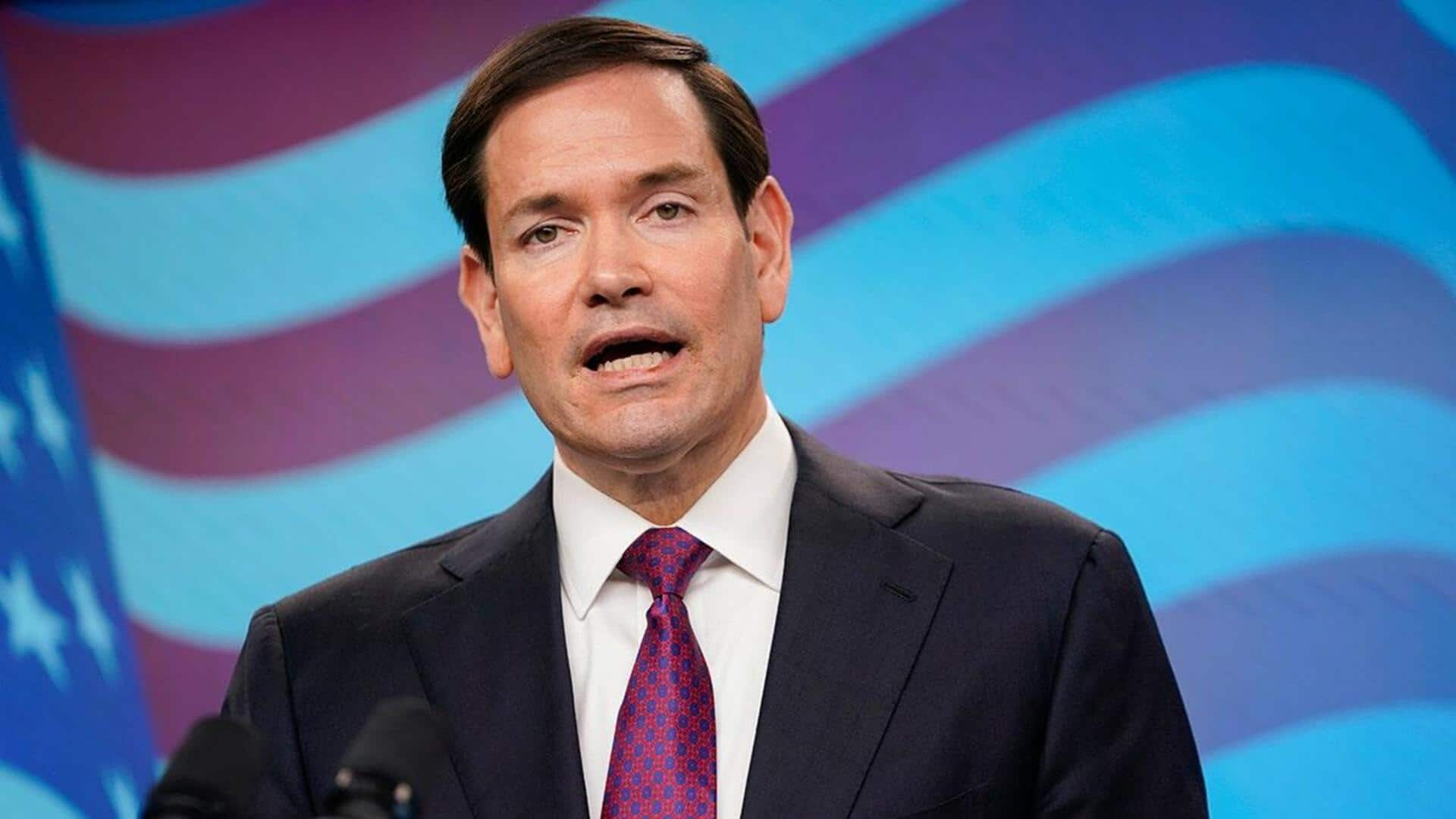
US threatens visa revocations for foreigners celebrating Charlie Kirk's assassination
What's the story
United States Secretary of State Marco Rubio has announced plans to deny and revoke visas for foreigners who celebrate the assassination of conservative activist Charlie Kirk. Speaking to Fox News, Rubio said, "We should not be giving visas to people who are going to come to the United States and do things like celebrate the murder, the execution, the assassination of a political figure." He added that those already in America should have their visas revoked.
Official statement
Deputy Secretary of State Chris Landau's statement
Deputy Secretary of State Chris Landau also spoke against foreigners praising Kirk's assassination. He wrote on social media, "In light of yesterday's horrific assassination of a leading political figure, I want to underscore that foreigners who glorify violence and hatred are not welcome visitors to our country." He also asked the public to flag such internet posts for State Department review.
Visa scrutiny
Controversy surrounding expanded vetting process
The State Department has expanded its vetting process under President Donald Trump, requiring visa applicants to provide access to their social media accounts. The vetting process has faced criticism for potentially violating First Amendment rights. Civil liberties groups argue the policies could punish legitimate political speech. However, officials maintain that visa issuance is a privilege, not a right.
University scrutiny
Visa directive and scrutiny of elite universities
An internal cable revealed consular offices were instructed in June to conduct "comprehensive and thorough vetting" for student and exchange visas with an emphasis on applicants' attitudes toward US citizens and culture. The visa directive comes as the Trump administration has intensified scrutiny of elite universities, particularly Harvard. Rubio's cable also instructed officers to be vigilant about applicants with political activism linked to violence. It warned that limited online activity could indicate an attempt to hide objectionable behavior.